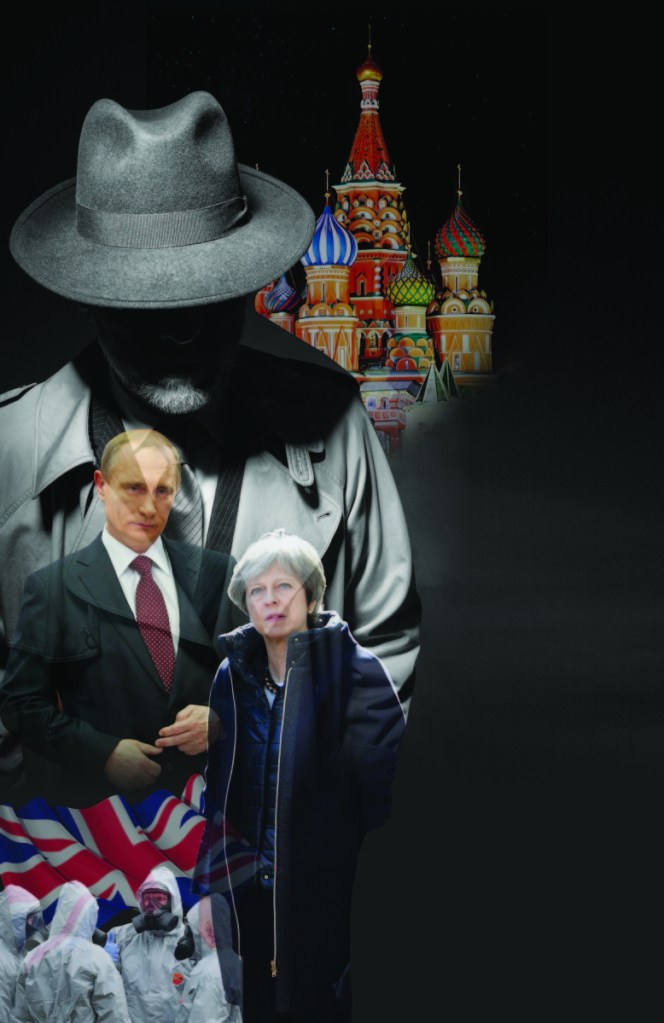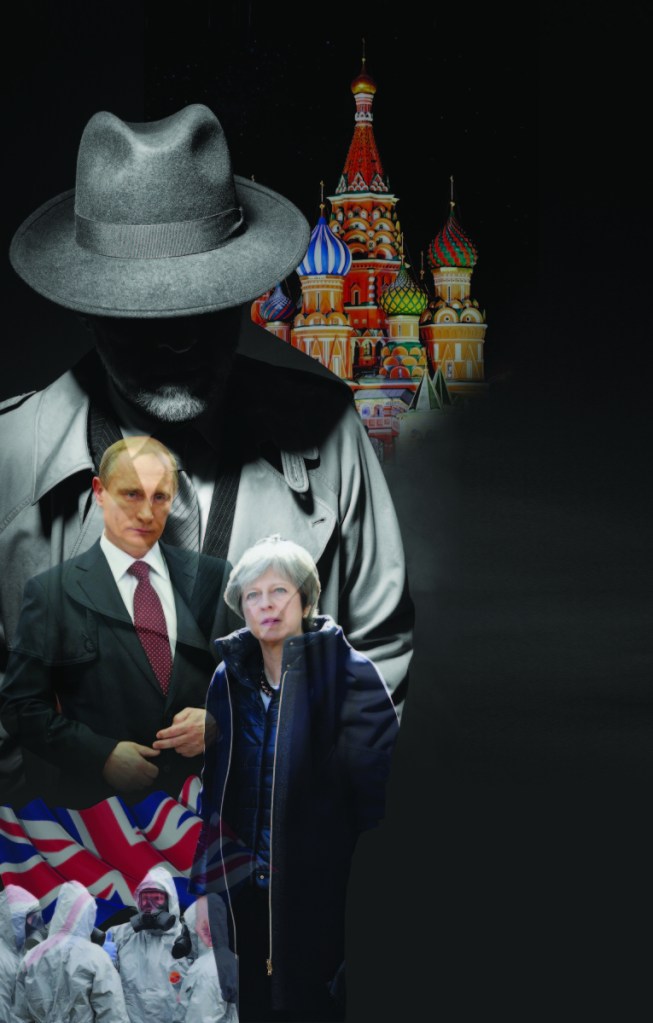Global spy games just got a little more dangerous with the byzantine poisoning of Sergei and Yulia Skripal in the medieval-era United Kingdom city of Salisbury.
Extraterritorial assassination attempts are usually precisely targeted, with the victim attacked in an unmistakable, but quiet, surgical strike. Among developed nations, there is not supposed to be any collateral damage and the attacking nation tries to maintain plausible deniability.
But the Skripal case using the Russian Novichok nerve agent just changed things.
The message to double-crossing double agents? There is no place to hide. The message to host countries harboring these defectors? Drop dead. More and more countries are witnessing targeted foreign assaults and assassinations on their soil in a wanton and reckless disregard for diplomatic norms, innocent bystanders and respect for national sovereignty.
Prime Minister Theresa May is showing both warranted outrage and unprecedented backbone regarding this poisoning. She has rightly noted the attack on the Skripals has harmed British citizens on British soil and exposed a larger citizenry to dangerous toxins. Further, she railed that England’s security forces were contaminated, and, most importantly, that this was a direct attack against her island nation. A NATO consultation may be in the works. Twenty-three Russian diplomats have been expelled. Even deeper retaliation is on the lips of an offended and angered political class.
While President Trump has been characteristically restrained regarding all things Russian, U.S. Sen. John McCain, R-Ariz., stated that “we must recognize Putin will not hesitate to engage in state-sponsored assassination. He must not be allowed to treat the UK or any other nation as a venue for political murder.”
Secretary of State Rex Tillerson, too, responded quickly and unequivocally to the attack, saying the poison used “clearly came from Russia” and that the “really egregious act” will “trigger a response.” The response came quickly. He and Under Secretary for Public Diplomacy Steven Goldstein were fired.
Russian Foreign Minister Sergei Lavrov said “we have nothing to do with this.” Tillerson’s gone while Lavrov’s star continues to rise. Where will a post-Rex America stand on Britain’s findings and any of its calls for further action against Russia?
How a post-Brexit-vote Britain and her dwindling Western allies react and respond to this new crisis is going to redefine the unwritten rules of how nations deal with growing, stealthy and murderous incursions on their territory. UK actions will help redefine the way national intelligence services behave abroad – both in what is acceptable and how they will unilaterally act in cases where they aggressively seek to protect national security and deeply held secrets. Are defectors off-limits? Does the killing of traitors have a statute of limitations? Are there any applicable standards and norms in a covert world where rules don’t easily apply? Should countries get away with anything as long as they are not caught red-handed?
These are difficult questions. The conditional ethics of covert behavior and intelligence activities are complex and alterable. That’s why John le Carre novels, like “The Spy Who Came in from the Cold,” are so deeply engaging. They force the reader to explore the personal conflicts of patriotic demands and the moral ambiguities of duty-bound action.
Britain’s most notorious double-agent, Kim Philby, was a part of the Cambridge Five spy ring before defecting to the USSR. Whether the Brits tried to kill Philby in Moscow is unknown, but he lived to an alcohol-pickled 76, honored for his Soviet service with the Order of Lenin and the issuing of a five-kopek postage stamp.
Edward Snowden, the former NSA contractor, is a contemporary intelligence asset living in Russian exile. Snowden does not yet have a postage stamp, but he does, so far, get to live securely in an undisclosed location in Moscow. The Skripal assassination attempt must be upping his already high paranoia and fear that “they will put a bullet in my head or poison me when I come out of the supermarket.” Even former Texas congressman Ron Paul believed that “somebody in our government might kill him with a cruise missile or a drone missile.”
True, American government officials do want Snowden dead, but they want Snowden’s death to take place in the good old USA, not under cover of darkness in another country. CIA Director and Secretary of State-designee Mike Pompeo has called for Snowden’s execution – not in Russia, but by bringing him home, giving him a trial, and handing him a death sentence.
The American and British approach to defectors, spies, and other wanted criminals or convicted enemies of the state is to actively try to get them back. In the meantime, they get to live out their miserable lives abroad.
Russia thinks differently and is double-daring Western nations to do something about it. Theresa May’s Britain just might.
— Tribune Media Services
Copy the Story LinkSend questions/comments to the editors.




Success. Please wait for the page to reload. If the page does not reload within 5 seconds, please refresh the page.
Enter your email and password to access comments.
Hi, to comment on stories you must . This profile is in addition to your subscription and website login.
Already have a commenting profile? .
Invalid username/password.
Please check your email to confirm and complete your registration.
Only subscribers are eligible to post comments. Please subscribe or login first for digital access. Here’s why.
Use the form below to reset your password. When you've submitted your account email, we will send an email with a reset code.